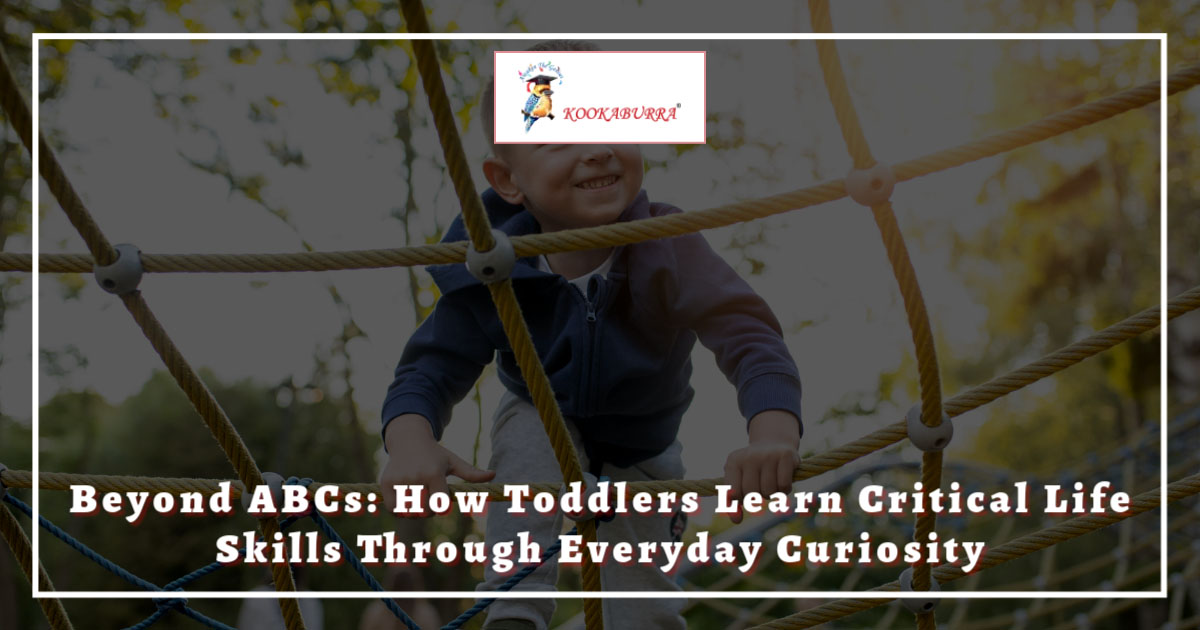
Beyond ABCs: How Toddlers Learn Critical Life Skills Through Everyday Curiosity
In a world where “learning” often means counting numbers or singing the ABCs, it’s easy to overlook the vital lessons that lie beyond. While mastering the alphabet is foundational, toddlers’ everyday interactions and curiosities teach them something equally crucial: life skills. These skills like empathy, patience, and self-regulation form the building blocks of a well-rounded individual, equipping them to adapt, thrive, and contribute meaningfully to society.
Essential Lessons That Go Far Beyond Traditional Academics
Decision-Making and Independence
In structured academic learning, children often work within the boundaries of clear-cut answers and guided choices. But in real-life settings, they encounter decisions that require independent judgment, an essential life skill. Early experiences with decision-making, such as deciding how to solve a minor conflict or what toys to play with first, instill confidence in their ability to make thoughtful choices.
This early decision-making builds their independence and adaptability, skills that are invaluable in adult life. Learning to make decisions thoughtfully gives children a sense of control over their environment and nurtures their self-confidence. Toddlers who frequently practice making choices, even in small ways, are better prepared to tackle bigger decisions with responsibility.
Social Awareness and Empathy
While classroom settings teach basic social interactions, it’s in unstructured, everyday moments that children develop emotional intelligence. Emotional intelligence, the ability to recognise, understand, and manage one’s own emotions and empathize with others is vital for building meaningful relationships and navigating the complexities of social dynamics.
At a young age, children begin recognising emotions in others, fostering empathy. For example, by observing a peer’s frustration or sadness, toddlers naturally begin to grasp compassion and understanding. This skill in emotional intelligence empowers children to become sensitive, self-aware individuals who can engage positively with others is a crucial aspect of social success as they grow.
Patience and Self-Control
In structured educational activities, children learn the importance of focus and discipline. Toddlers build patience as they wait for their turn to play, listen while others speak, or wait their turn in line. These situations subtly teach self-control and the value of patience in achieving long-term goals.
Self-regulation and delayed gratification are essential components of emotional and cognitive development. Developing these traits at a young age lays the groundwork for self-discipline in academic and social settings later in life. By mastering patience, children learn to navigate tasks without frustration, an invaluable skill as they encounter more complex challenges.
Communication and Expression
While traditional education often emphasizes vocabulary and speech, effective communication goes beyond language. Through daily interactions, toddlers learn to express themselves with gestures, facial expressions, and actions, developing skills that are critical for clear and confident communication. For instance, communicating through actions, such as showing excitement by clapping or comfort by a gentle touch, enables toddlers to convey complex feelings even before they master verbal communication.
Non-verbal communication and listening skills are crucial for personal and professional success. When children learn to “listen” to actions and emotions, they become more adept at understanding others and expressing themselves clearly. Early exposure to diverse forms of communication helps toddlers grow into articulate, empathetic individuals who understand the power of both verbal and non-verbal expression.
Creativity and Critical Thinking
Academics can introduce problem-solving skills, but life’s unpredictability teaches critical thinking and creativity. These life skills emerge as children explore, experiment, and imagine without rigid guidelines. Early exposure to open-ended activities and exploratory play helps toddlers develop the ability to think outside the box and approach problems from multiple perspectives.
For instance, a child exploring with blocks may attempt different ways of stacking and balancing them. This unstructured play encourages innovation and flexible thinking, foundational skills for creative problem-solving. By fostering an environment that celebrates exploration, Kookaburra Preschool ensures that toddlers develop an innate sense of curiosity and critical thinking, skills essential for both academic and life success.
Kookaburra, Where Curiosity Fosters Growth
At Kookaburra Preschool, we champion an environment where curiosity leads to growth, offering children the tools they need to explore, question, and develop life skills that go beyond academic success.
For families who value holistic education, Kookaburra offers a nurturing space that embraces each child’s curiosity, fostering real-world skills for a lifetime of learning.
